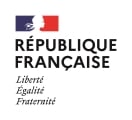Interest rate risk
Agence France Trésor has structural exposure to interest rate risk at all times. Each year, Parliament requires it to borrow on the financial markets to fund the fiscal deficits passed in Budget Acts and to refinance maturing debts. This constant exposure leads to an issuance policy based on regularity, predictability and transparency. Agence France Trésor refrains from having views about interest rate market trends.
Counterparty risk
The French government’s counterparties are mainly Primary Dealers. As of 1 March 2017, there were 16 Primary Dealers, whose number includes some of the leading players on global financial markets.
The financial soundness of these institutions is a criterion for their selection. They are also bound by French market agreements in order to mitigate default risk as far as possible.
These agreements require daily margin calls for futures transactions and repos.
Repos are secured in two ways: the transfer of securities, which belong to the government in the event of default by the counterparty, as well as margin calls, which readjust the value of the securities daily.
Agence France Trésor’s general activity framework also sets risk limits based on counterparties' equity and credit ratings.
Liquidity risk
Unlike banks, the government does not engage in asset and liability gap management. Managing liquidity risk lies at the heart of its debt issuance policy and cash management.
The policy for primary market issuance is aimed at ensuring access to the bond market under all circumstances. It is based on the principles of predictability, stability and transparency.
Cash management aims to ensure the government’s financial continuity: this means making sure that the government’s cash position is always enough to cover expenditure and revenue under the most secure conditions. The agreement with the Banque de France, which manages the Treasury Account, is based on the principles of information, security and neutrality. The rules in place ensure that the Treasury’s account balance does not decline after 3.00 p.m. due to the belated posting of urgent transactions.
Agence France Trésor has imposed notification requirements for any debits exceeding 1 million euros in order to enhance the predictability of movements on the Treasury Account.
The French government calibrates its issuance of BTFs with maturities ranging from a few days or a few weeks to one year to manage the lags between its revenues and expenditures over the course of a year and to ensure tight management of the Treasury Account. Its policy uses investments in highly liquid instruments (very short-term unsecured loans) or in very secure transactions (repos, where cash is exchanged for government securities and margin calls are made).
The French government has also signed agreements with several governments or intergovernmental bodies from the euro area that allow for bilateral cash lending and borrowing.
Internal limits on settlement risk have also been set.
Operational risk
Article 4(1.(52)) of Regulation (EU) 575/2013 defines operational risk as “the risk of loss resulting from inadequate or failed internal processes, people and systems or from external events, and includes legal risk.”
Agence France Trésor has implemented a diverse range of tools to manage operational risk:
- it has mapped its major processes and described the tasks and verifications to be performed for each of them
- the Director General of the Treasury, who is the Chairman of the Agency, has approved the general activity framework, which specifies the prudential framework for its operations
- operating procedures have been documented by the various units
- an incident monitoring database is systematically updated
- a graduated business continuity plan has been implemented and is tested and updated periodically
- the Agency has also developed an internal audit plan and keeps the risk map up to date
(Market) exchange rate risk
Exchange rate risk is the risk arising from variation in the parity of one currency vis-à-vis a benchmark currency.
A drop in exchange rates could lead to a loss in the value of assets denominated in foreign currencies.
Agence France Trésor has no exchange rate risk exposure and the foreign currency transactions it makes for third parties are systematically hedged for the full amount or else correspond to foreign currency payments that it covers on their behalf (e.g. exchange rate hedging of France’s international contributions to the UN).

